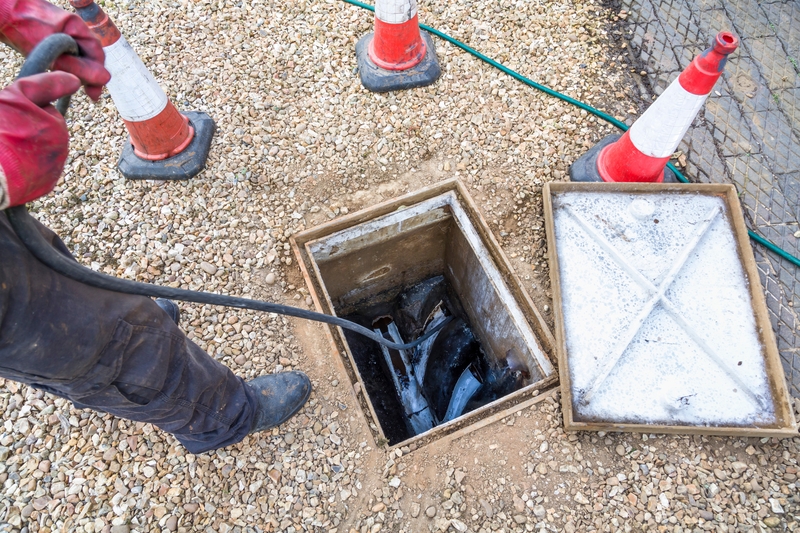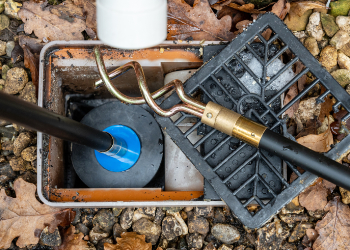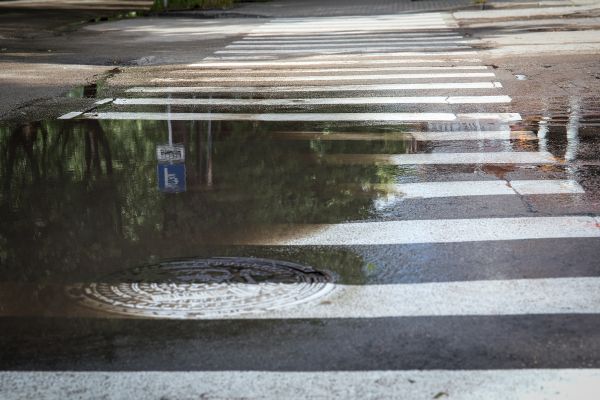In this article
Who is responsible for a blocked drain?
Blocked drains are a common household problem that can lead to inconvenience, property damage, and potential health hazards. Understanding the responsibility for blocked drains is crucial for homeowners, property owners, and local authorities to ensure drainage systems' proper maintenance and functioning.
In this blog, we will delve into the causes of blocked drains and explore the respective responsibilities of individuals and entities in addressing and preventing drain blockages. By shedding light on this topic, we aim to empower readers to take proactive measures and make informed decisions regarding their drainage systems.
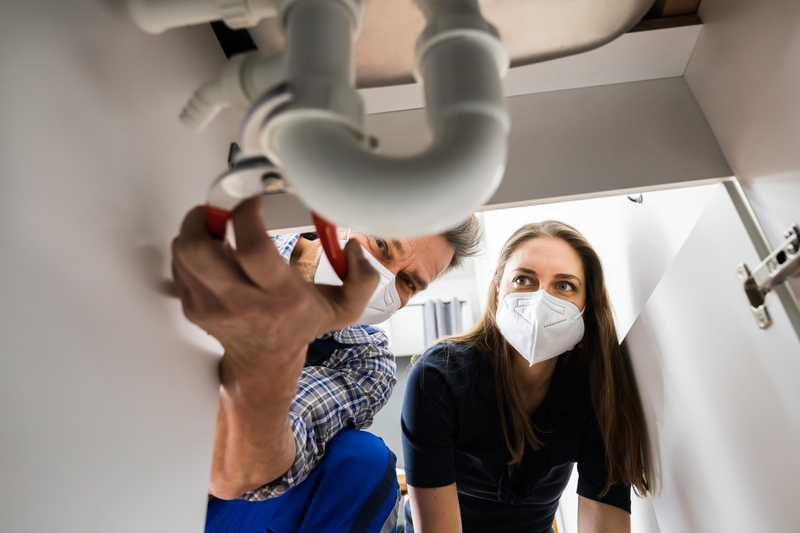
Common Causes of Blocked Drains
Before we can determine where the responsibility of a blocked drain lies, it's important to understand how it happens in the first place. Blocked drains can stem from various common causes, from everyday activities to accidental neglect. Some of the primary contributors to drain blockages include:
-
Grease and Oil Build-Up
Disposing of grease and oils down the kitchen sink can lead to accumulating these substances within the pipes, causing constrictions and blockages over time.
-
Hair
Hair shedding during showers or grooming routines can amass within the drainage system, impeding the water flow and contributing to clogs.
-
Foreign Objects
Accidental or deliberate introduction of foreign objects, such as sanitary products, wet wipes, and excessive toilet paper, into toilets and drains can obstruct the pipes and result in blockages.
-
Food Waste
Improper disposal of food scraps down the kitchen sink can gradually lead to the formation of blockages, particularly when combined with grease and oil residues, which hinder a drain from properly working.
-
Tree Roots
In outdoor drainage systems, invasive tree roots can infiltrate and congest underground pipes, causing significant blockages and damage to the plumbing infrastructure.
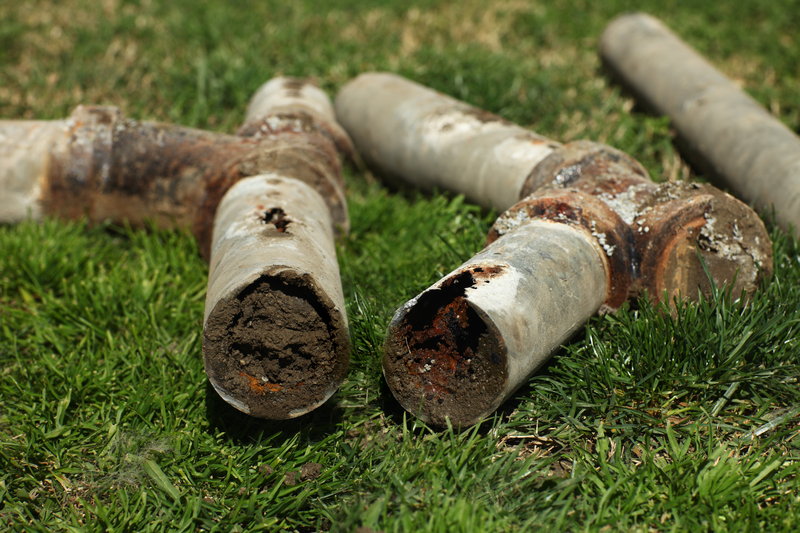
These causes can result in blockages by impeding the flow of water through the drainage system, leading to slow draining, foul odours, and in severe cases, complete blockages. It's essential to recognise the impact of these factors to proactively mitigate the risk of a drain blockage and maintain the functionality of the plumbing network.
Responsibilities of Homeowners
So, do homeowners bear a significant responsibility when there is a drain blocked on their property?
In short, the answer is yes. However, this responsibility goes beyond merely addressing blockages when they occur, extending to proactive measures and regular maintenance to prevent the occurrence of blockages.
Preventative Measures:
Homeowners are tasked with taking proactive measures to prevent blockages. This includes exercising caution with waste disposal, such as refraining from pouring grease and oil down sinks, as these substances can lead to pipe constrictions and blockages over time. Using drain guards to catch hair and other debris before entering the drainage system is also recommended.
Regular Maintenance:
Conducting routine inspections and maintenance of drainage systems is essential. Homeowners should consider periodically flushing drains with a mixture of hot water and vinegar to mitigate the build-up of grease and other substances, preventing potential blockages and maintaining clear drains.
Prompt Action:
Addressing minor drainage issues promptly is critical to preventing them from escalating into severe blockages. Homeowners should be vigilant for signs such as slow drainage, unusual gurgling sounds, or unpleasant odours and take immediate action to rectify these issues. It's always a good idea to hold equipment in your home if you need to unblock a drain in your drain pipes quickly. These include:
-
Drain snake
-
Plunger
-
Chemical Cleaner
Tips for Preventing Blockages and Regular Maintenance Practices
-
Use Drain Covers: Install drain covers in sinks and showers to trap hair, soap scum, and other debris before they enter the drainage system and cause a clogged drain.
-
Proper Waste Disposal: Educate household members about appropriate waste disposal practices, emphasising the avoidance of flushing non-biodegradable items down toilets and responsibly disposing of cooking oils and fats.
-
Regular Inspections: Schedule routine inspections of drains and plumbing fixtures to identify and address potential issues before they escalate and ensure any cctv drain surveys have taken place.
-
Professional Maintenance: Engage professional plumbing services for periodic drain cleaning and inspections to ensure the continued functionality of the drainage system.
By adhering to these responsibilities and implementing preventative measures and maintenance practices, homeowners can contribute to preserving clear and functional drains within their properties.
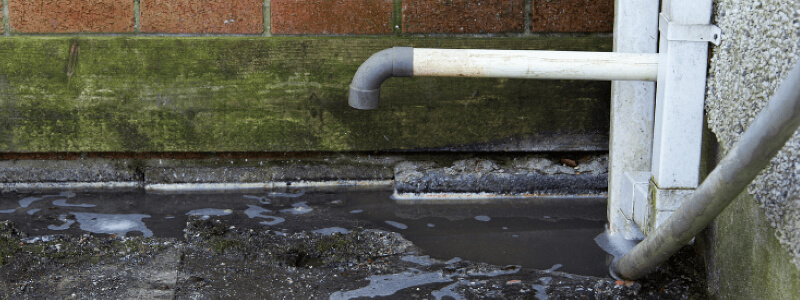
Responsibilities of Property Owners and Landlords
Property owners and landlords play a crucial role in maintaining drainage systems within their properties, ensuring tenants' well-being and preserving the property's infrastructure. Their responsibilities encompass several key areas:
Regular Maintenance:
Property owners are responsible for implementing regular maintenance measures to prevent and address drain blockages, including conducting inspections, cleaning, and repairs as necessary.
Provision of Information:
Landlords should provide tenants with clear guidelines and information on the proper use and maintenance of drainage systems, including waste disposal practices to prevent blockages.
Timely Repairs:
Property owners must promptly address any reported drainage issues or blockages to mitigate inconveniences for tenants and prevent potential damage to the property.
Legal Obligations and Expectations for Rental Properties
In many jurisdictions, property owners and landlords are legally obligated to maintain the habitability of rental properties, which includes ensuring the proper functioning of drainage systems. Specific legal expectations may include:
Warranty of Habitability
Landlords are generally bound by the legal warranty of habitability, requiring them to maintain essential services, including plumbing and drainage, in a functional condition.
Timely Response
Legal expectations often require landlords to respond promptly to tenant complaints regarding drainage issues and take appropriate measures to rectify the situation within a reasonable timeframe.
Preventative Maintenance
Landlords may be expected to undertake preventative maintenance measures to minimise the risk of drain blockages and ensure the long-term functionality of the drainage system.
Role of Local Government in Managing Public Drainage Systems
Local government entities, such as municipalities, play a critical role in managing public drainage systems to ensure the effective functioning of infrastructure and the community's well-being. Their responsibilities include:
Infrastructure Maintenance:
Local governments are tasked with the regular maintenance and upkeep of public drainage systems, including inspection, cleaning, and repairs, to prevent blockages and ensure optimal functionality.
Regulatory Oversight:
Municipalities often establish and enforce regulations about drainage systems, such as stormwater management ordinances, to mitigate the risk of blockages and address potential environmental impacts.
Emergency Response:
In the event of severe blockages or drainage system failures, local governments are responsible for coordinating emergency response efforts to mitigate disruptions and protect public safety.
Responsibilities of Local Government in Preventing and Addressing Drain Blockages
Local Governments have specific responsibilities in preventing and addressing drain blockages within public drainage systems, including:
-
Regular Inspections: Conduct routine inspections of public drainage infrastructure to identify and address potential blockages, ensuring the uninterrupted flow of stormwater and wastewater.
-
Public Education: Providing educational resources and outreach to inform residents about proper waste disposal practices and the impact of blockages on public drainage systems.
-
Infrastructure Improvements: Undertaking infrastructure improvement projects, such as installing debris capture devices and maintaining retention basins, to prevent blockages and minimise the risk of flooding.
-
Collaboration with Stakeholders: Collaborating with relevant stakeholders, such as property owners and environmental agencies, to implement comprehensive strategies for preventing and addressing drain blockages.
Seeking Professional Help for Severe or Persistent Blockages
In the case of severe or persistent drain blockages, it is advisable to seek professional assistance from qualified plumbers or drain unblocking services. These professionals can provide the expertise and equipment to address complex blockages effectively. When seeking professional help, consider the following steps:
-
Assessment: Engage a reputable plumbing service to thoroughly assess the drainage system to identify the root cause of the blockage and determine the most appropriate remediation method.
-
Documentation: Keep detailed records of all communication and work performed by the hired professionals, including any findings, recommendations, and invoices, to maintain a clear record of the efforts to resolve the blockage.
-
Preventative Advice: Request preventative advice from professionals to minimise the risk of future blockages, including recommended maintenance practices and potential infrastructure improvements.
Legal Implications and Liabilities of Neglecting Drain Maintenance Responsibilities
Neglecting drain maintenance responsibilities can carry legal implications and liabilities, particularly for property owners and landlords. Some potential considerations include:
-
Tenant Rights: Failure to address drainage issues promptly may violate tenants' rights to a habitable living environment, potentially leading to legal disputes and financial repercussions.
-
Property Damage: Neglecting drain maintenance responsibilities can result in property damage, exposing property owners to potential liability for repairs and compensation for affected tenants.
-
Regulatory Compliance: Non-compliance with local regulations related to drain maintenance and blockage prevention can lead to fines, penalties, and legal enforcement actions by relevant authorities.
To mitigate these risks, property owners and landlords need to fulfil their maintenance obligations promptly and proactively address drain blockages to uphold legal compliance and protect the well-being of their tenants and properties. It is advisable to seek legal counsel to understand the specific legal responsibilities and liabilities associated with drain maintenance in the relevant jurisdiction.
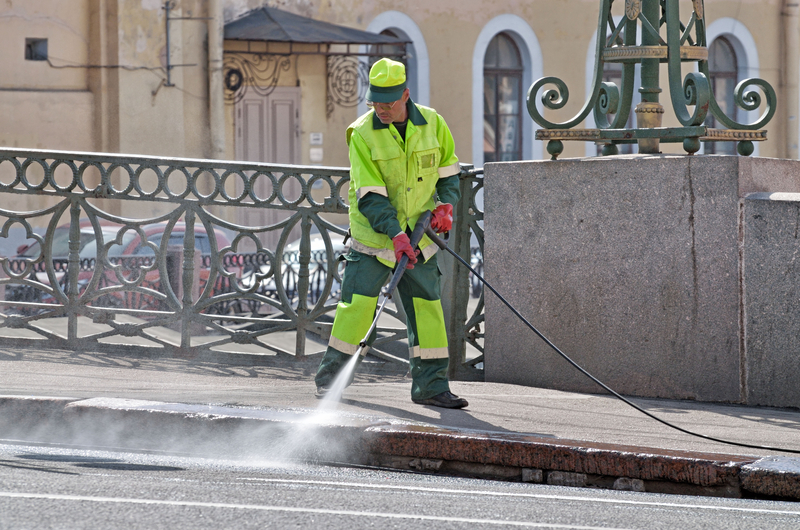
Conclusion
In conclusion, property owners and local governments share the responsibility for the management of unblocking drains. Property owners and landlords are accountable for maintaining their drainage systems and educating tenants about proper usage to prevent blockages. Meanwhile, local governments oversee public drainage systems, conduct regular inspections, and implement measures to avoid blockages in the community.
You must ensure regular maintenance, proper waste disposal practices, and compliance with legal regulations are met to avoid serious blocked drain issues. Using a proactive approach, you can minimise the risk of a blocked drain and protect your home from potential damage and legal liabilities.
Cotswold Drainage
Here at Cotswold Drainage, our drain unblocking specialists are here to help you with any blocked drain problems. With our advanced drain unblocking equipment and drain cleaning service, our team is here to get your drainage system running smoothly. Feel free to book a free consultation to learn more about our drain clearance and drain cleaning services.
Get in touch
Contact our friendly and professional team via form, phone or email for any drainage issues you may have.
From blocked drains to septic tank repairs and replacements, we're here to help. We have over 25 years of experience and offer 24/7 emergency callouts.
-
01386 882324
-
WhatsApp
-
This email address is being protected from spambots. You need JavaScript enabled to view it. -
See what our customers think
